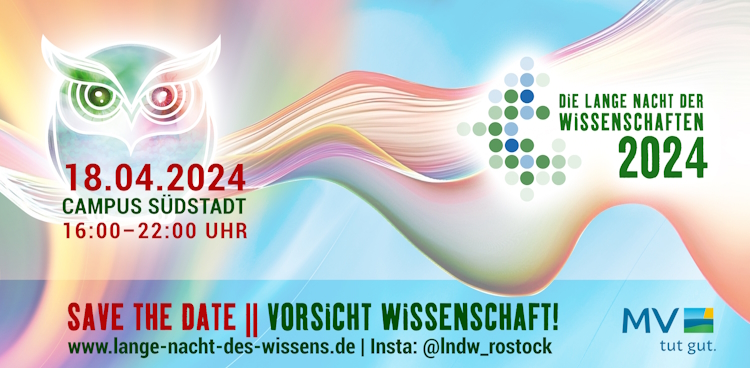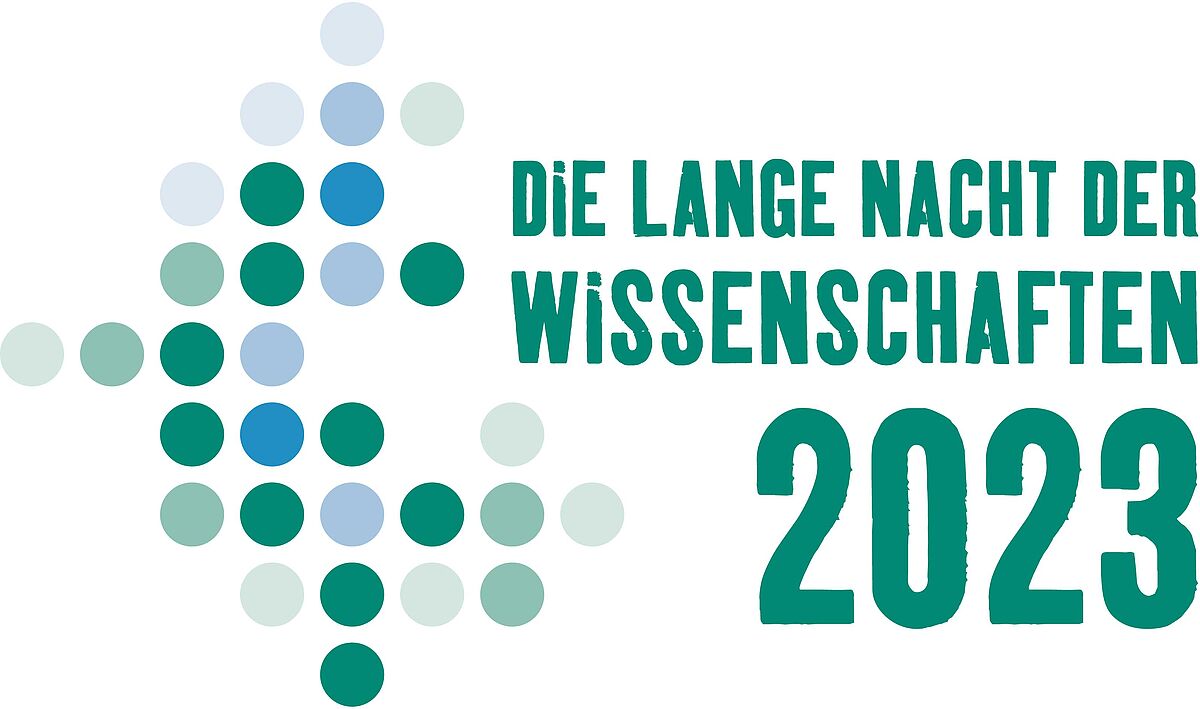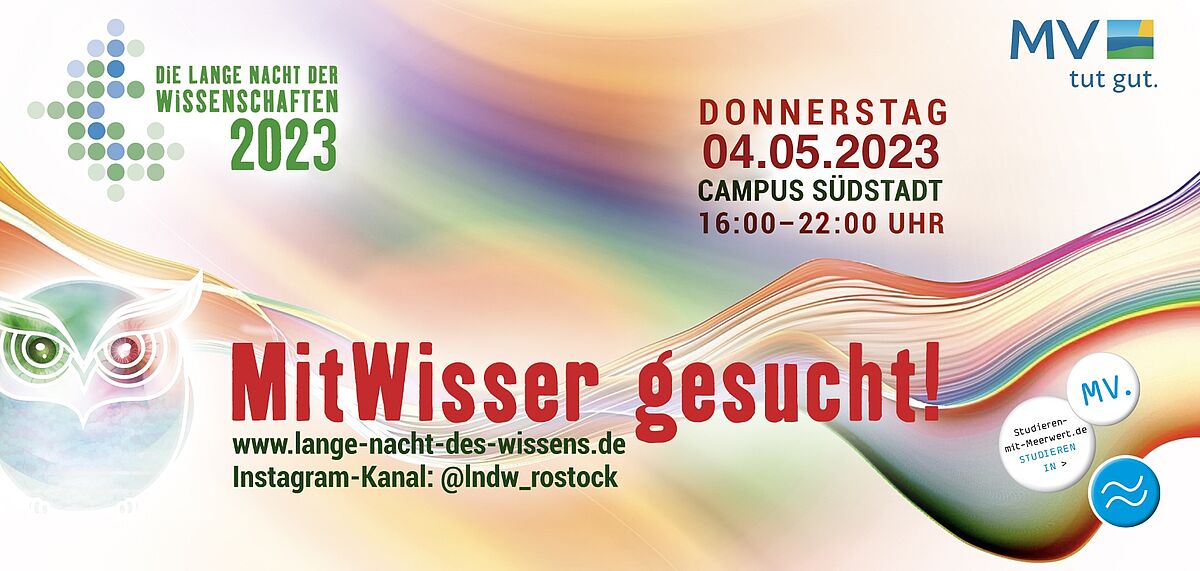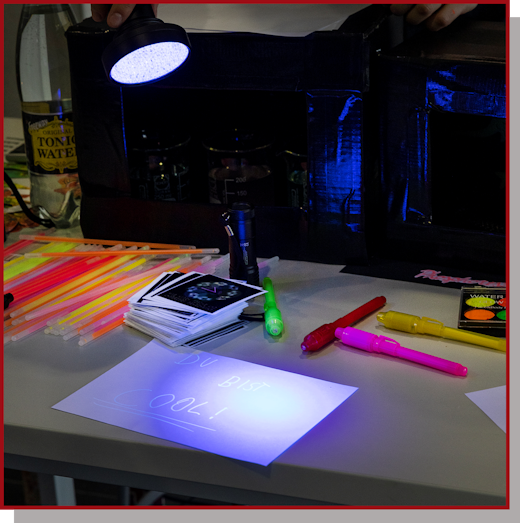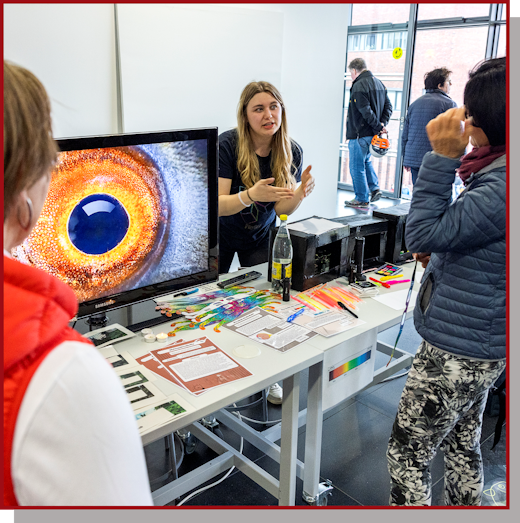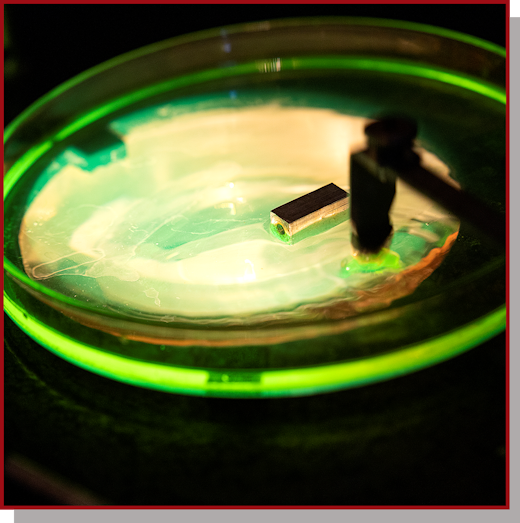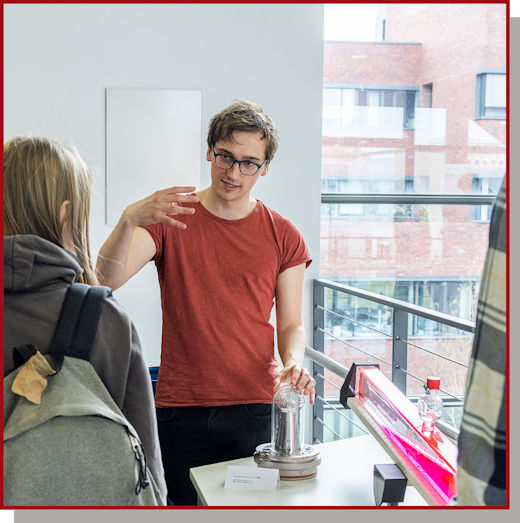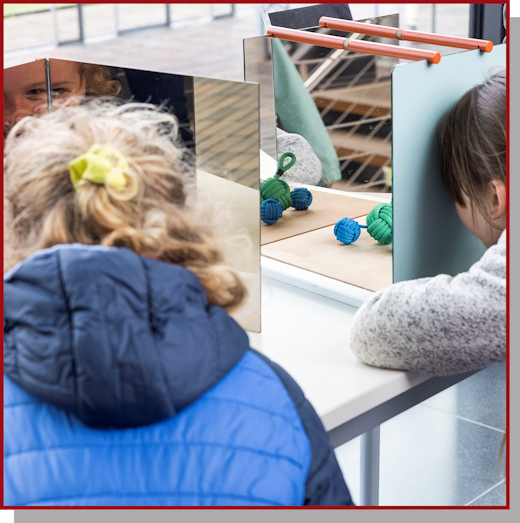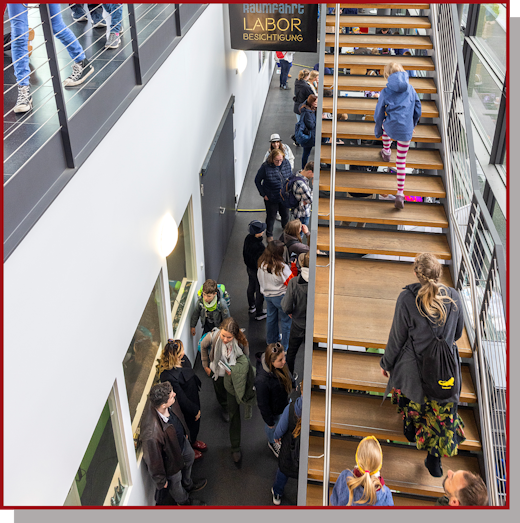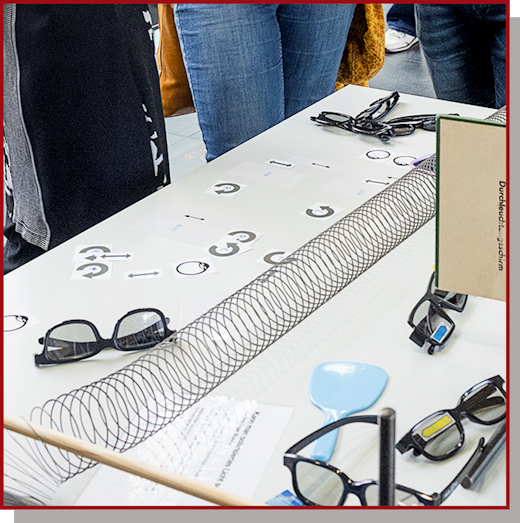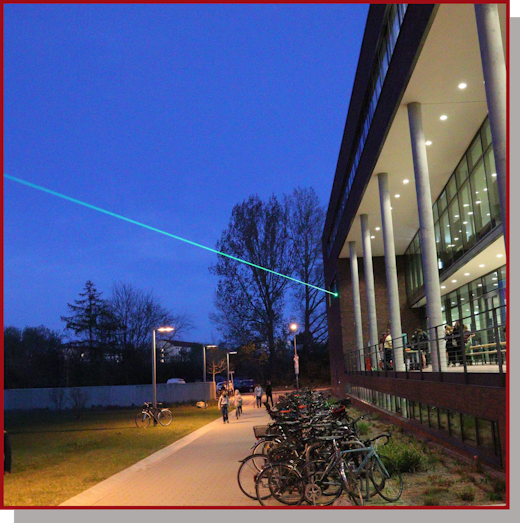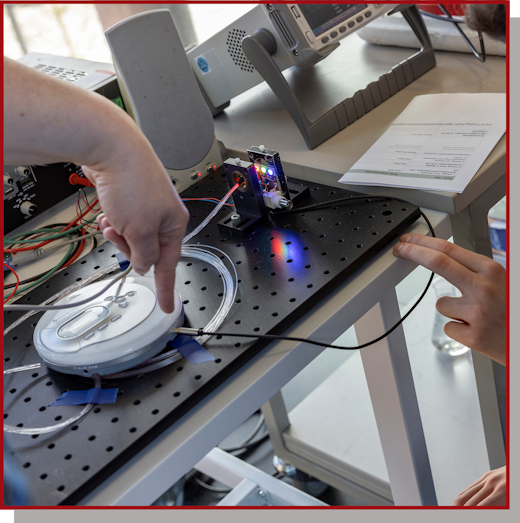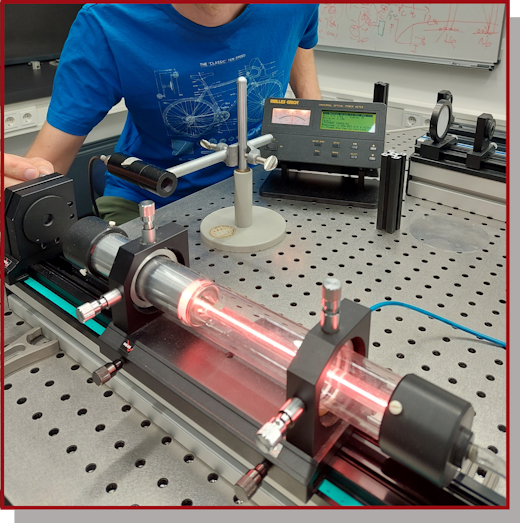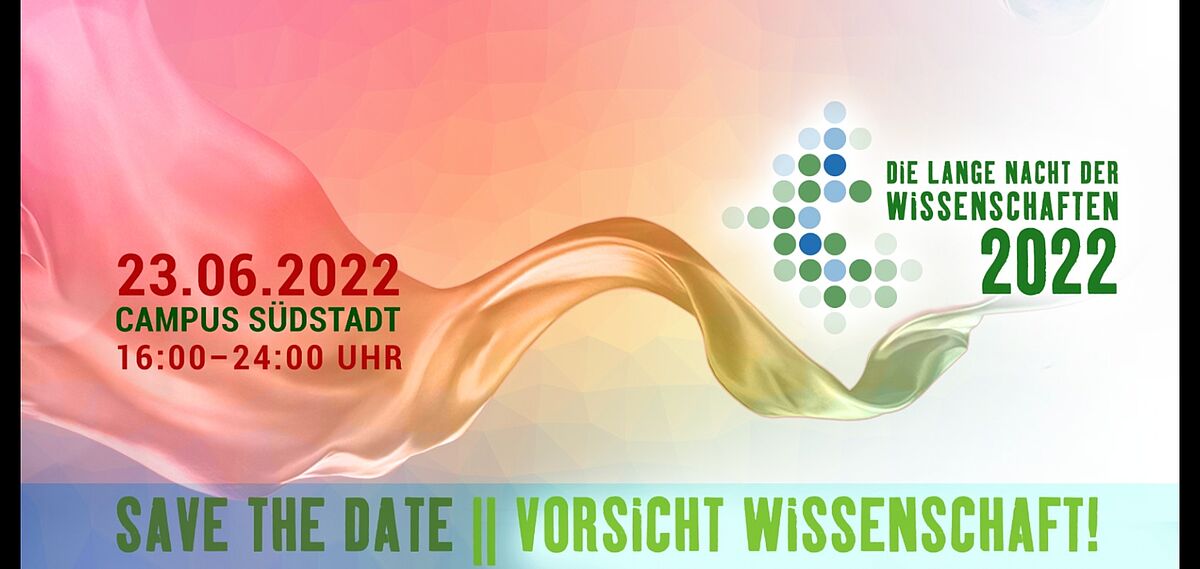LiMatI goes N8 of Science
The Long Night of Science is not only a traditional event in the Regiopol region of Rostock. Every year since 2000, local scientific institutions throughout Germany have opened their doors to the public to provide insights into their respective research focuses.
The Institute of Physics and the researchers of the CRC LiMatI participate with numerous hands-on experiments as well as lectures and presentations on the topic of light-matter interactions.
Contact
Wiebke Loseries
Universität Rostock
Albert-Einstein-Str. 23
18059 Rostock
Mail: wiebke.loseriesuni-rostockde
Phone.: +49 (0) 381 498-6755
| Long Night of Sciences 2024 - SAVE THE DATE |
|---|
18.04.2024, 16:00 Uhr - 18.04.2024, 22:00 Uhr
The Long Night of Science is a traditional event in the Regiopol region of Rostock. The University of Rostock and numerous scientific and educational institutions open their doors on this event evening on the Südstadt Campus and at other locations in the Hanseatic and university city of Rostock and provide insights into their activities and the associated professions with exciting show lectures, talks, experiments and tours.
The event is free of charge for participants. Registration is not required.
Under the motto "Way of Light", the Institute of Physics once again opened its doors to visitors for this year's Long Night of Science.
What color is light?
How do you capture a beam of light?
What is the smallest thing you can see?
Sunscreen - hot or not?
How much light do you need to see?
These and more questions were explained to our visitors.
| Impressions of the Long Night of Sciences 2023 |
|---|
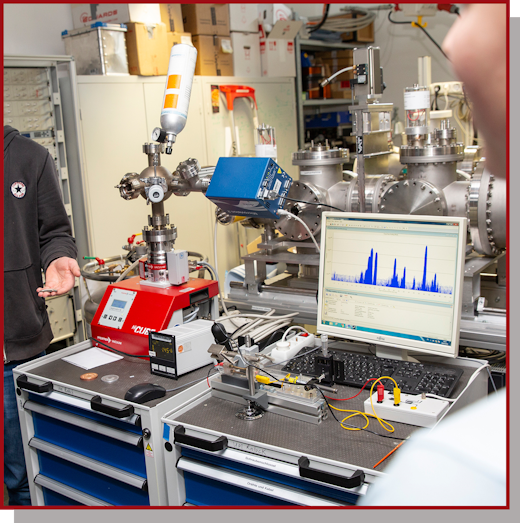
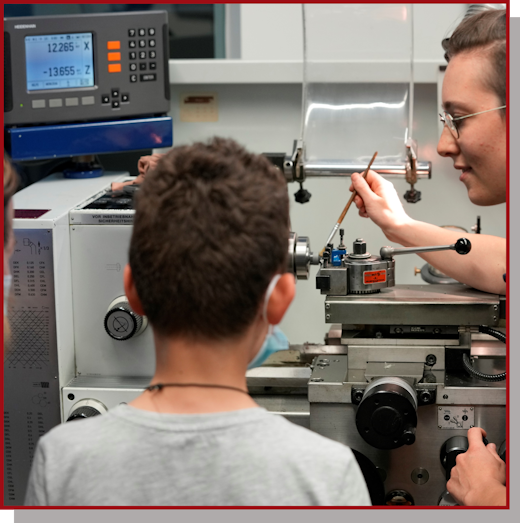
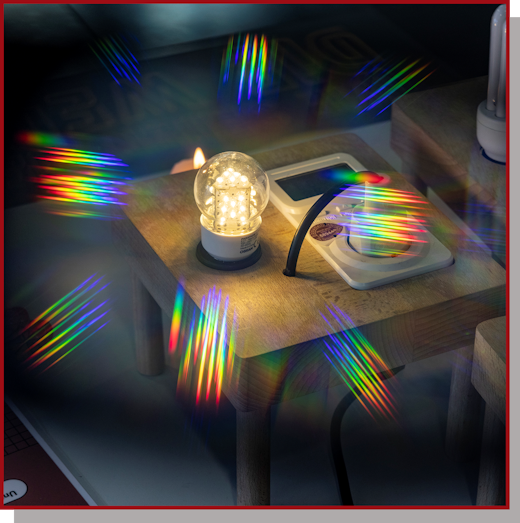
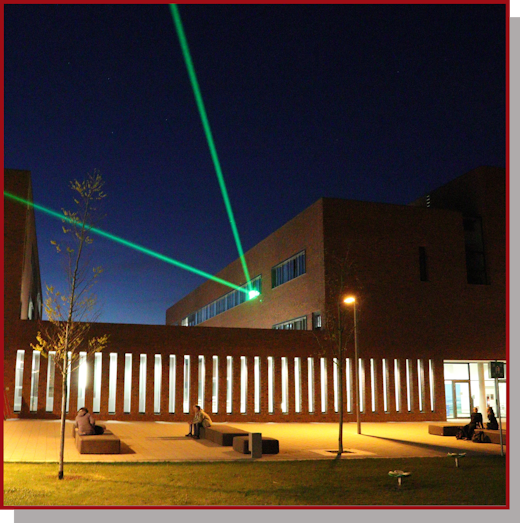
Source: Bilddatenbank der Universität Rostock
After a two-year break due to the pandemic, the Long Night of Science took place in Rostock on June 23, 2022. The University of Rostock, the Rostock University of Music and Drama, the two Rostock Fraunhofer Institutes for Computer Graphics Research IGD and for Large Structures in Production Engineering IGP, the Leibniz Institute for Catalysis LIKAT and the Thünen Institute of Baltic Sea Fisheries opened their doors. This year's event focused on the university's South Campus.

